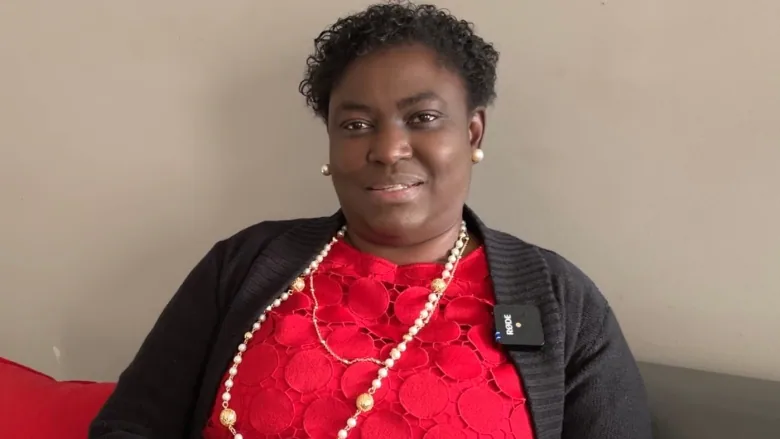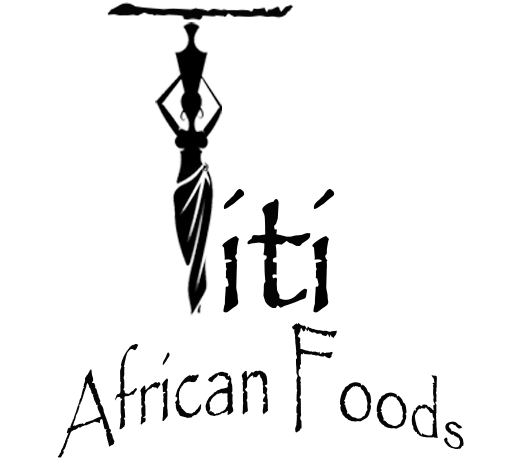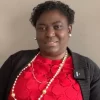
African newcomers now one of the largest immigrant groups moving to Alberta
Newcomers from Nigeria leading growth in Alberta’s African communities

Africans moving to Alberta now make up an increasingly large portion of immigrants choosing to start new lives in the province, according to cenus data for 2021 released this fall.
Most are coming from Nigeria, followed by Eritrea, Ethiopia and Somalia, along with smaller numbers from other African nations.
That’s creating growing communities of Black Albertans in cities and towns across the province, with people escaping conflict and political instability, joining family members and others simply looking for good jobs and better opportunities for their families and future generations.
The new data shows that between 2016 and last year, 34,320 people moved to Alberta from Africa.
Of those, 15,695 settled in Calgary.
Of 9,840 Nigerians arriving in Alberta between 2016 and last year, 6,170 settled in Calgary.
The number of new immigrants coming to Calgary from Nigeria is now larger than the numbers coming from countries like Pakistan and Syria.
“The driving factor is to have a better life,” said Clare Jagunna, a Nigerian who now helps others settle in the city.
She says more Nigerians heading to Alberta creates a supportive and growing community here, leading to more success when it comes to settlement.
“I’m one of them”, said Jagunna, when asked about Nigerian success stories.
She studied law In Nigeria but never practised there and now wants to go back to school here to pursue a career in that field.
“I’ve seen a lot of people come here and be so successful that you wouldn’t believe it,” she said. “Nigerians generally are very successful because of their education.”

Jagunna says the average Nigerian coming to Canada has a master’s degree or bachelor’s degree.
“Anybody, and I mean anybody, coming out of Nigeria is educated and ready to learn,” she said. “And that sets them up for success.”
Jagunna says that as more Nigerians arrive in Alberta, they spread the word to friends and families back home, letting them know that Alberta and Calgary are good places to move to for work and quality of life.
She says there’s now a strong and growing African community here, made up of people from places like South Sudan, Somalia and Eritrea to Francophone Africans from places like Cameroon and Ivory Coast.
“We are far away from home, so every Nigerian sees other Nigerians as a brother or sister. We make sure we set them up for success,” said Jagunna.
“Africans, when we see each other, we believe we are brothers and sisters, no matter where we’re coming from.”
She says that even before people leave Nigeria, there are WhatsApp groups where they can connect with people already in Calgary and get first-hand information on jobs and share settlement tips.
She says that as well as being educated, good English language skills also make moving to a new country a less daunting prospect than for other groups.
“In Nigeria, we have three major languages and over 260 dialects, but the common language is English. So it makes it very easy for us to converse,” she said.
Jagunna says she now wants to see more Nigerians in positions of power in Alberta, in both business and politics.
“We want our voices to be heard now, and people are trying as much as possible to become leaders in their own fields: IT, not-for-profit, even pastoral work.”

The new immigration numbers aren’t a big surprise for agencies that work with newcomers and refugees in Calgary.
“Even though we’re starting to see more African communities arrive in Canada and starting to build much more of a base, there are still problems we need to address within the system,” said Anila Lee Yuen, CEO of the Centre for Newcomers.
Lee Yuen says there are still systemic biases and discrimination when it comes to how people from African countries are selected and processed when applying to live in Canada.
“It’s important to the health and well-being of our country to have newcomers from all over the world be welcome and included,” said Lee Yuen.
Lee Yuen says there are supports and programs in Calgary for African newcomers, tailored to their backgrounds and challenges, including at her own organization, from English language classes to employment training.
As well as settlement agencies and organizations, African leaders in Calgary have created their own group called the Calgary African Community Collective, bringing African newcomers from different countries together and providing a range of different services and supports — for the community delivered by the community.
They say building a strong community increases the chances of success and creates new opportunities for all Africans.
“A lot of African people are choosing Calgary because life is much easier compared to other major cities, and a lot of immigrant people are settled by the federal government in neighbouring cities like Medicine Hat and Brooks, and they eventually end up moving to Calgary,” said Farah Ali, executive director of the Calgary African Community Collective.

Ali says the numbers at the collective’s events and community gatherings keep on growing every year as more newcomers arrive.
“We have the Somali community, the Eritrean, Ethiopian, East and West Africans and others, and we have joint events. It’s a big network,” said Ali.
That network helps newcomers navigate challenges, including adjusting to a new life, the culture shock of moving from Africa to Western Canada and issue like racism, the rising cost of living and mental health issues.
“A lot of people experience an element of racism. Racism is something the city and the province are taking baby steps toward but addressing that aspect of racism would really improve the lives of a lot of Black people in the community,” he said.
Ali says that as well as challenges there are opportunities for African immigrants.
“It’s easier for immigrants to get employed here within six months compared with other cities. I’ve seen a lot of new immigrants move here, and by the end of their first year, they have a full-time job and are looking into home ownership,” he said.
Ali says the Somali community and others also attract newcomers who arrived and settled in other Canadian cities and head to Calgary later as a result of the community here.
“Calgary is a major city for the future for the Black community,” said Ali, who also wants to start seeing more Africans in positions of authority and power in Alberta.
“I’m looking forward to a community that’s better represented, especially in politics,” he said. “We don’t have much representation compared to other ethnic minorities yet, so I think we have to improve that. It would be beneficial to the black community,” he said.
Other community leaders say immigration means diversity and inclusion are improving by the day in Calgary as more people choose to settle here.

“It positions Calgary as one of the most livable cities in the world and makes it very attractive,” said Charles Odame Ankrah, a board member of the Calgary African Community Collective and the president of the Ghanaian Canadian Association of Calgary.
“People want to come to a city that’s safe, good to raise kids and with good economic opportunities,” he said.
Ankrah says as the community grows, so do the supports available to newcomers, as well as African businesses, which help people feel connected to their home countries while starting new lives as Canadians.
“Now there are a lot of African restaurants and African stores, so when you come here, you don’t crave your food like you did 30 years ago. Times are changing, and you now see a little bit of Africa wherever you go in the city,” said Ankrah.
He says it’s sometimes the little things like traditional food that can make the transition easier.
Community specific groups like his own Ghanaian organization also play a big part.
“When you have people from your own community who have been through what you are about to experience guide you and help you navigate, you settle faster.”
Ankrah says catching newcomers before they fall through the cracks is also important, especially guiding African youth away from negative elements that might lead them into bad situations.
“When they are arriving, they need to be aware of the services that are available, even prior to arriving. That makes the transition much smoother.”
Ankrah says culture shock and mental health issues also need to be considered.
But he says Calgary presents way more opportunities than challenges, which will continue to attract new people and families to the city in the coming years.
“Diversity and inclusion are improving. Calgary is a great city, it’s known for its hospitality, known for its generous people, known for its sports, economic opportunities, for so many things that attract people looking to raise families here.”
ABOUT THE AUTHOR

Dan McGarvey · CBC News · Posted: Dec 20, 2022 3:35 PM EST | Last Updated: December 29, 2022
Journalist
Dan McGarvey is a mobile journalist focused on filing stories remotely for CBC Calgary’s web, radio, TV and social media platforms, using only an iPhone and mobile tech. His work is used by mobile journalism (mojo) trainers and educators around the world. Dan is focused on sharing stories from under-reported communities and groups in Calgary and southern Alberta. You can email story ideas and tips to Dan at Dan.Mcgarvey@cbc.ca.



